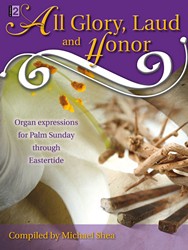- |
User Links
My harp untuned, and laid aside

My harp untuned, and laid aside
Author: John NewtonTune: ST. CROSS (Dykes)
Published in 13 hymnals
Printable scores: PDF, Noteworthy ComposerAudio files: MIDI
Representative Text
1 My harp untuned, and laid aside,
To cheerful hours the harp belongs;
My cruel foes, insulting cried,
"Come, sing us one of Zion’s songs."
2 Alas! when sinners, blindly bold,
At Zion scoff, and Zion’s king;
When zeal declines, and love grows cold,
Is this a day for me to sing?
3 Time was, whene’er the saints I met,
With joy and praise my bosom glowed;
But now, like Eli, sad I sit,
And tremble for the ark of God.
4 While thus to grief my soul gave way,
To see the work of God decline;
Methought I heard my Savior say,
"Dismiss thy fears, the ark is Mine"
5 Though for a time I hide My face,
Rely upon My love and power;
Still wrestle at a throne of grace,
And wait for a reviving hour.
6 Take down thy long neglected harp,
I’ve seen thy tears, and heard thy prayer;
The winter season has been sharp,
But spring shall all its wastes repair.”
7 Lord, I obey, my hopes revive,
Come join with me, ye saints, and sing;
Our foes in vain against us strive;
For God will help and healing bring.
Source: The Cyber Hymnal #11614
Author: John Newton
 John Newton (b. London, England, 1725; d. London, 1807) was born into a Christian home, but his godly mother died when he was seven, and he joined his father at sea when he was eleven. His licentious and tumultuous sailing life included a flogging for attempted desertion from the Royal Navy and captivity by a slave trader in West Africa. After his escape he himself became the captain of a slave ship. Several factors contributed to Newton's conversion: a near-drowning in 1748, the piety of his friend Mary Catlett, (whom he married in 1750), and his reading of Thomas à Kempis' Imitation of Christ. In 1754 he gave up the slave trade and, in association with William Wilberforce, eventually became an ardent abolitionist. After becoming a tide… Go to person page >
John Newton (b. London, England, 1725; d. London, 1807) was born into a Christian home, but his godly mother died when he was seven, and he joined his father at sea when he was eleven. His licentious and tumultuous sailing life included a flogging for attempted desertion from the Royal Navy and captivity by a slave trader in West Africa. After his escape he himself became the captain of a slave ship. Several factors contributed to Newton's conversion: a near-drowning in 1748, the piety of his friend Mary Catlett, (whom he married in 1750), and his reading of Thomas à Kempis' Imitation of Christ. In 1754 he gave up the slave trade and, in association with William Wilberforce, eventually became an ardent abolitionist. After becoming a tide… Go to person page >Text Information
| First Line: | My harp untuned, and laid aside |
| Author: | John Newton |
| Copyright: | Public Domain |
Notes
My harp untuned, and laid aside. J. Newton. [Hoping for a Revival.] Appeared in the Olney Hymns, 1779, Book ii.,No. 52, in 7 stanzas of 4 lines, and headed, "Hoping for a Revival." From it the hymn "While I to it my soul gave way," sometimes "While to its grief my soul gave way," beginning with stanza iv., is taken. In the Preface to the Olney Hymns Newton says: "My grief and disappointment [at the downfall of Cowper's health and mind] were great; I hung my harp upon the willows, and for some time thought myself determined to proceed [with hymn-writing] no farther without him. Yet my mind was afterwards led to resume the service." On comparing this extract with this hymn it seems very probable that this was his first effort after resuming his sometime abandoned work.
--John Julian, Dictionary of Hymnology, Appendix, Part II (1907)


 My Starred Hymns
My Starred Hymns



